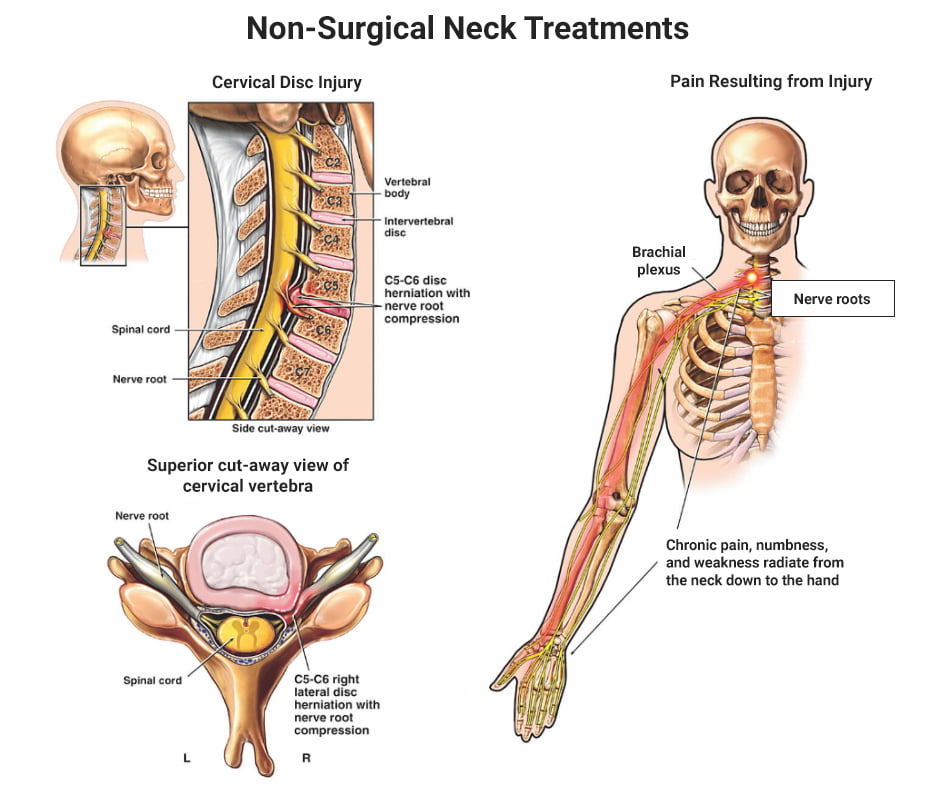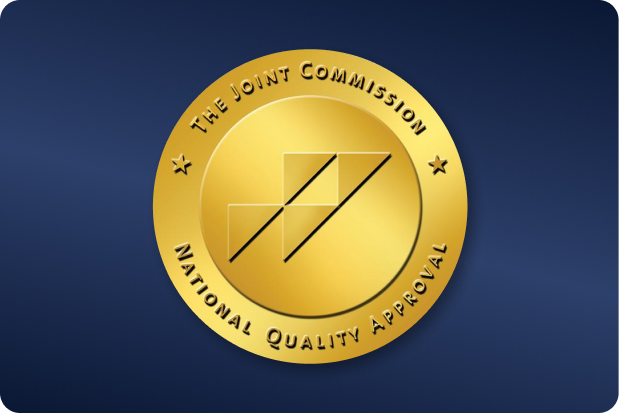 OUR LOCATIONSCall to book (212) 604-1300
OUR LOCATIONSCall to book (212) 604-1300
 OUR LOCATIONSCall to book (212) 604-1300
OUR LOCATIONSCall to book (212) 604-1300
Table of contents
The most frequent reason for a neck injury is trauma. Any strike or fall that injures any portion of the neck is considered a trauma. It can also be brought on by illnesses, including arthritis, cancer, or infections that harm any of the structures in your neck. Minor events like strains, sprains, and spasms can result in neck injury. Injuries can arise from a stiff neck, misuse, overuse, or normal wear and tear.
Your neck may occasionally sustain injury from a disease process that originates elsewhere in your body. These conditions can occur throughout your spine, affecting both the vertebrae and the robust muscles responsible for supporting and facilitating movement in your head.
Some of these conditions include:
Neck injuries can range from minor muscle strains to severe conditions like whiplash or cervical spine fractures. Common causes include car accidents, sports injuries, and poor posture. Early diagnosis and proper treatment are crucial to prevent long-term complications.

The neck is a complex and sensitive part of the body, and everyone is at some risk of injury due to its critical role in supporting the head, housing important anatomical structures, and enabling movement.
The risk can vary depending on your occupation, activities, and individual factors. Engaging in high-impact or collision sports, such as football, weightlifting, rugby, or hockey, increases the likelihood of getting neck injuries. Additionally, untreated or underlying conditions can elevate this risk. Neck injuries may also manifest as age-related issues.
Pain is a common symptom of injuries, and is a crucial indicator for doctors to pinpoint a diagnosis. The type and intensity of pain can provide valuable clues about the underlying cause. Sudden, sharp pain typically suggests a different cause than persistent, dull pain. Additionally, associated symptoms and the location of pain can help identify the root issue.
Additional neck injury symptoms include:
It could be necessary to seek emergency care if you have certain symptoms, particularly following a trauma. In addition to loss of bladder and bowel control, symptoms like vomiting, tingling, loss of consciousness, and breathing issues must all be treated by a medical professional right away.
The management of your pain starts with scheduling an initial consultation, during which you will have a thorough discussion about your pain. This will include all aspects of your lifestyle, daily activities, and previous traumas to identify the root cause of your discomfort. A pain management specialist will examine your posture, search for areas of tenderness, examine your range of motion, and perform a neurological examination.
The diagnosis of neck pain requires a multi-approach to identify the exact cause and choose the treatment method.
The following tests are usually done:
I’ve been seeing Josephine Musto for about a year for a neck injury I’ve experienced from a car accident. She has been instrumental in helping me manage my pain and helping to find solutions not just bandaids. Working with Josephine and coming to New York Spain Care is the first time I’ve started to feel real relief since this accident over 3 years ago. She really there to help her patients and spends time with you and really gets to know and understand your problems. I’d highly recommend her and New York Pain Care to anyone needing help managing their chronic pain.
Amanda Y. ★★★★★Carol has done wonders treating my neck injury and pain. I have several herniated discs which had me in chronic horrible pain. Carol is very caring and expert in her PT treatment, as is the entire staff. My pain has decreased and my mobility increased. I am grateful for Carol and the staff.
Dennis C. ★★★★★I highly recommend this medical facility to anyone who has a back or neck injury and chronic pain. The quality of service you will receive is outstanding! The office is extremely accommodating to your schedule and the staff is incredible! Without Josephine Musto and Dr. Hosny I would not be the person that I am today!
Lisa C.For acute trauma, immediate medical attention or first aid measures are required. If medical personnel are unavailable to tend to you, go to the closest hospital. You must treat acute trauma first in order to stabilize your condition and prevent any harm from further treatment.
Treatment for illnesses, non-acute injuries, and minor trauma to the neck is contingent upon the underlying cause. Once your pain management doctor has determined the underlying reason for any muscle, tendon, or ligament pain, they can prescribe the appropriate measures. Avoid using at-home remedies if you have a fractured or broken bone. It will take a little longer and involve extra care for your recovery.
Effective neck injury treatment often combines rest, physical therapy, and pain management techniques. Early evaluation by a specialist is crucial to prevent complications and ensure proper recovery.
If you have suffered a neck injury or other no-fault injuries, don’t delay! Contact our pain management centers in New York or New Jersey for a complete examination and damage assessment before your condition worsens. The neck injury specialists at New York Pain Care develop a personalized treatment plan based on your unique situation.






New York Pain Care
20 Squadron Blvd, Suite 290
New City, NY 10956
(212) 242-8160






